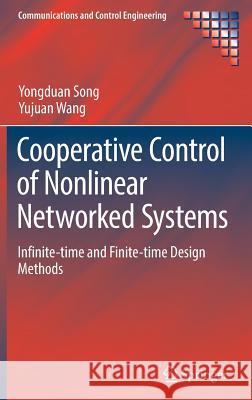Cooperative Control of Nonlinear Networked Systems: Infinite-Time and Finite-Time Design Methods » książka
topmenu
Cooperative Control of Nonlinear Networked Systems: Infinite-Time and Finite-Time Design Methods
ISBN-13: 9783030049713 / Angielski / Twarda / 2019 / 197 str.
Kategorie:
Kategorie BISAC:
Wydawca:
Springer
Seria wydawnicza:
Język:
Angielski
ISBN-13:
9783030049713
Rok wydania:
2019
Wydanie:
2019
Ilość stron:
197
Waga:
0.48 kg
Wymiary:
23.39 x 15.6 x 1.42
Oprawa:
Twarda
Wolumenów:
01
Dodatkowe informacje:
Wydanie ilustrowane











